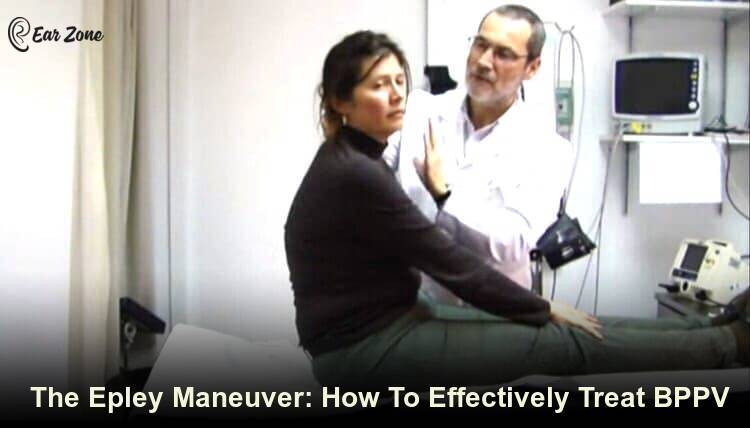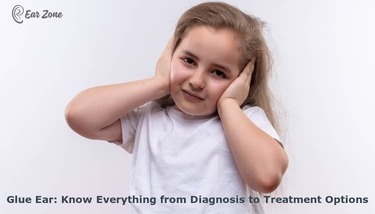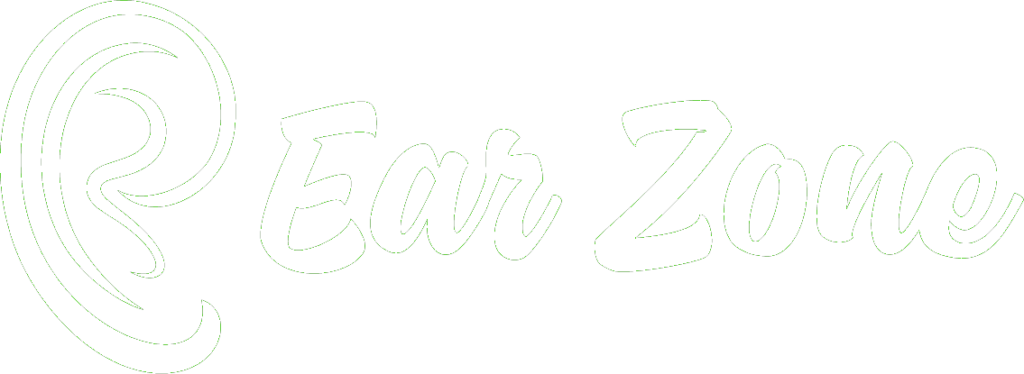
By Dr. Jessica Hinson, Au. D. University of South Alabama
Know more about Dr. Jessica Hinson
Do you occasionally feel dizzy and unsteady or feel off-balance while walking? If so, you could be suffering from a balance disorder. While it can occur at any age, it mostly affects older individuals. Random dizziness may result from the common cold or ear infections. However, if you frequently experience loss of balance and dizziness, it deserves attention.
Frequent spells of dizziness and poor balance indicate an issue with the body’s balance system that should not be ignored. This blog will help you to understand the different kinds of balance disorders, their causes, symptoms, and available treatments.
Symptoms Of Balance Disorders
Although balance disorder symptoms vary from person to person, the common symptoms are as follows.
- Dizziness or a spinning sensation (vertigo)
- Unsteady or getting a feeling that you may fall
- Staggering while walking
- Lightheaded feeling or a floating sensation
- Disoriented, not sure of the surroundings
- Blurred vision or double vision
- Headaches
- Nausea and vomiting
- Anxiety or panic
- Tinnitus
- Hearing loss
How Does Our Sense of Balance Work?
While you are well aware that the ear is the organ for hearing, what you may not know is that the ear also plays a crucial role in maintaining your body’s balance or sense of equilibrium.
The vestibular system or organ of balance is a sensory part of your inner ear that sends information regarding balance and motion to the brain. The brain uses this information in addition to other inputs from the eyes, limbs, and skin to help you maintain balance1.
Causes Of Balance Problems
The medical term for imbalance is disequilibrium. Some common causes of balance disorders are as follows:
- Inner ear problems: Inner ear disorders include BPPV, Meniere’s disease, vestibular neuritis, and labyrinthitis.
- Medications: Side effects of certain drugs such as diuretics, antidepressants, and anti-seizure medications can cause dizziness or vertigo
- Head injuries: Head injury can affect the parts of the brain that are responsible for balance.
- Aging, vision problems, poor blood circulation or insufficient supply of blood to the inner ear, and blood pressure issues.
- Neurological conditions
What Neurological Disorders Cause Balance Problems?
Alzheimer’s disease, Parkinson’s disease, and acoustic neuroma are some of the neurological conditions that may cause balance problems.
Inner Ear Disorders
In this blog, we will cover the following inner ear disorders:
- Benign Paroxysmal Positional Vertigo (BPPV)
- Ménière’s Disease
- Vestibular Neuritis
- Labyrinthitis
Benign Paroxysmal Positional Vertigo (BPPV)
Benign Paroxysmal Positional Vertigo (BPPV) is an inner ear disorder and the most common cause of balance issues in the elderly population. BPPV symptoms, such as dizziness, nausea, and light-headedness, are generally triggered by actions such as rolling over in bed, looking up, or tilting your head back.
What Causes BPPV?
Benign paroxysmal positional vertigo (BPPV) is caused by tiny calcium carbonate crystals (otoconia) becoming dislodged from their normal location in the utricle, and moving into one of the semicircular canals.
The vestibular system, located in the inner ear, is responsible for balance. It houses the utricle and the semicircular canals.
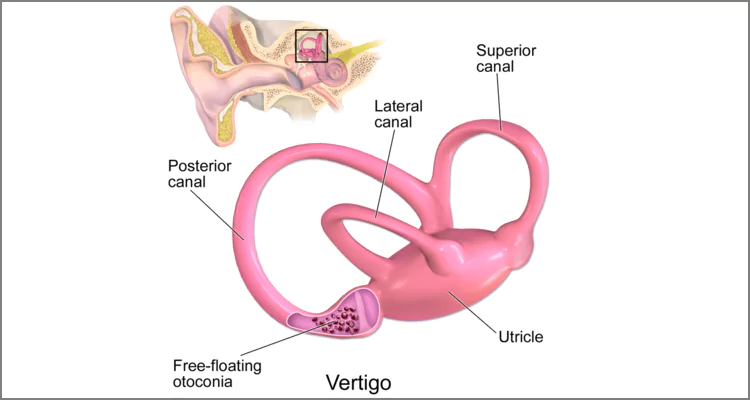
Benign Paroxysmal Positional Vertigo Diagnosis
Diagnosing BPPV typically involves noting your medical history, physical checkup, and conducting BPPV diagnosis tests.
Medical history: The doctor will note your symptoms including the frequency, duration, and triggers. Additionally, they will also confirm whether any head injury is the cause of the balance issues.
Physical check-up: The doctor will check for signs of ear infection and the ability to control eye movement.
BPPV Diagnosis Test
The Dix-Hallpike maneuver is the key BPPV diagnosis test. In this test, you will be seated upright, and the clinician will rotate your head and lower you on the examination table and observe your eyes for involuntary eye movement called nystagmus2.
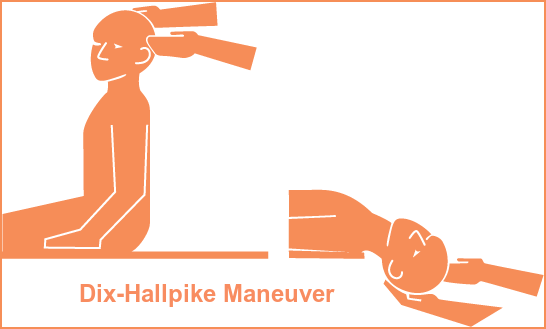
In some cases, your doctor may also advise electronystagmography (ENG) or videonystagmography (VNG) tests. These tests are conducted to determine whether dizziness is due to an inner ear disease.
Benign Paroxysmal Positional Vertigo Treatments
Your audiologist will decide on the ideal BPPV treatment, as it depends on the severity of your symptoms, affected ear, and any underlying medical conditions.
In most cases, a non-invasive canalith repositioning procedure is used to dislodge the calcium carbonate crystals from the semicircular canals and move them back to their proper location in the utricle.
The Epley maneuver is the most common canalith repositioning maneuver and has an 80-90% success rate. Read our detailed article on Epley maneuver.
While BPPV can be disorienting, it is usually temporary and available treatments are effective. Get a professional evaluation to find the best plan for you.
What is Ménière’s Disease
Ménière disease is a rare inner ear disease caused by an abnormal buildup of fluid in the labyrinth. It can occur at any age but mostly affects adults aged 40 to 60 years.
Ménière’s Disease Symptoms
Common Ménière’s disease symptoms are as follows:
- Regular dizzy spells or vertigo: Episodes typically last 20 minutes to several hours. Severe episodes may cause nausea.
- Tinnitus: Ringing, buzzing, roaring, whistling, or hissing sound are common symptoms.
- Hearing loss: You may initially experience fluctuating hearing loss, but it may become permanent over time.
- Aural fullness: Pressure or fullness in the ears, similar to a blocked ear or a clogged ear feeling. Read our article on causes of clogged ears and how to unclog them.
Causes Of Ménière’s Disease
The exact cause of Ménière’s disease is not fully known; however, there is a strong link to an abnormal buildup of fluid in the inner ear, called endolymph4.
The buildup of fluid disrupts the delicate workings of the inner ear resulting in symptoms such as vertigo and hearing problems.
Although the primary cause of Ménière’s disease is the buildup of fluids in the ear and poor fluid drainage due to blockages, other likely triggers are:
- Autoimmune Disorders: According to a study, approximately one-third of Ménière’s disease cases may be associated with abnormal immune responses affecting the inner ear3.
- Viral infections: Certain viral infections may play a role in triggering the condition in some individuals.
- Allergies: Allergies may contribute to Ménière’s disease, although the exact link remains unclear. Patients with Ménière’s disease tend to have an allergy history,
- Genetics: A family history of Ménière’s disease increases the risk of developing it.
Meniere’s Disease Diagnosis
Ménière’s disease diagnosis is based on your medical history in correlation with clinical tests.
The primary criteria for Ménière’s disease diagnosis are:
Frequency and duration of vertigo attacks. Two or more spells of vertigo, each lasting 20 minutes to 12 hours, or up to 24 hours.
- Tinnitus
- Aural fullness or a feeling of fullness or pressure in the ear
- Low to mid frequency hearing loss
The other clinical tests are:
- Audiometry test to check hearing loss
- Balance assessment using tests like electronystagmography (ENG or VNG), caloric test, rotary-chair testing, vestibular evoked myogenic potentials (VEMP), computerized dynamic posturography (CDP), and video head impulse test (vHIT)
- Lab tests, imaging scans, and other tests to rule out conditions such as brain tumors or multiple sclerosis.
Ménière’s Disease Treatment
As there is no cure for Ménière’s disease, the treatment focuses on the management of symptoms. Some common treatments and management strategies include the following:
- Medications: Prescription drugs can relieve dizziness and reduce the duration of vertigo attacks.
- Diet restriction: Reduce salt intake. It can worsen fluid retention and increase the inner ear pressure.
- Diuretics: Also known as water pills are medicines that help remove excess fluid by increasing urine output.
- Vestibular Rehabilitation Therapy: Engaging in vestibular rehabilitation exercises can help improve balance and reduce dizziness.
- Lifestyle Changes: Avoid triggers such as caffeine, alcohol, and certain foods that can worsen symptoms.
- Stress management: Relaxation techniques to reduce the impact of stress on symptoms.
Ménière’s disease can be challenging, but understanding the symptoms, potential causes, and available treatments can empower you to manage it effectively. Contact your audiologist for a personalized approach.
Vestibular Neuritis
Vestibular neuritis is an inner ear disorder that results in the inflammation of the vestibulocochlear nerve. This nerve is responsible for transmitting signals related to balance between the inner ear and brain.
The inflammation disrupts these signals, leading to severe vertigo and other balance issues.
Vestibular Neuritis Symptoms
Some vestibular neuritis symptoms are as follows.
- Severe and sudden vertigo
- Intense dizziness
- Inability to balance or walk straight
- Nausea and vomiting.
- Nystagmus – involuntary eye movements that cannot be controlled.
Vestibular Neuritis Causes
In most cases, vestibular neuritis is caused by viral infections. The virus can affect the middle ear or start elsewhere in the body and travel to the inner ear. The common viral infections are as follows:
- Upper respiratory viruses that cause the common cold or flu.
- Herpes viruses, including those that cause chickenpox, shingles, and mononucleosis.
- Cytomegalovirus (CMV) and Epstein-Barr virus (EBV) are potential triggers of vestibular neuritis.
Vestibular Neuritis Treatment
Vestibular neuritis usually resolves on its own within a few weeks as the inflammation in the vestibular nerve subsides. If there is no relief, your doctor may recommend any of the following treatments after diagnosis.
- Antiviral drugs to manage vestibular neuritis, especially if the cause is a viral infection
- Motion sickness medications or vestibular suppressant drugs to control nausea and vomiting associated with vertigo
- Antihistamines to provide relief from dizziness
- Corticosteroids in the early stages to reduce inflammation and promote recovery
Physical Therapy for Vestibular Neuritis
- Vestibular Rehabilitation: A customized exercise program helps improve balance and reduce symptoms.
- Gaze Stabilization Exercises: These exercises improve eye-head coordination for better balance.
- Balance Training: Exercises to improve overall balance.
While vestibular neuritis can be a disorienting experience, early diagnosis and a combination of treatments can help manage the symptoms and restore balance. Meet your healthcare professional for personalized guidance.
Labyrinthitis
Labyrinthitis is an inner ear infection that causes inflammation of the labyrinth, this maze-like structure in your inner ear is responsible for hearing and balance. This inflammation interferes with the signals sent to the brain from the inner ear.
Labyrinthitis Symptoms
Labyrinthitis symptoms are similar to those of other balance disorders.
- Vertigo
- Hearing loss
- Nausea and vomiting
- Blurry vision
- Tinnitus
- Concentration problems
- Involuntary eye movements (nystagmus).
Symptoms can vary in severity, and may be accompanied by other issues related to the inner ear.
Labyrinthitis Causes
Labyrinthitis can be caused by various factors, but the most common causes of labyrinthitis are as follows:
- Viral infections: These are the most frequent cause of labyrinthitis.
- Bacterial infections: Although not as common as viral infections, bacterial infections can spread from the middle ear to the inner ear, causing labyrinthitis.
- Medicines: Medications such as antidepressants, anti-inflammatories, and certain diabetes medications can also trigger labyrinthitis in some individuals.
- Head injury: A blow to the head can damage the delicate structures of the inner ear, leading to labyrinthitis. This is known as a labyrinthine concussion.
Labyrinthitis Treatment
Labyrinthitis treatment generally involves a combination of bed rest and medications to help cope with symptoms.
- Antiviral drugs: If viral infection is the cause of labyrinthitis
- Antihistamines: Anti-allergy drugs are effective in managing dizziness and vertigo
- Antiemetics: Anti-nausea medicines can be used to control nausea and vomiting
- Corticosteroids: Steroids can be used to reduce Inflammation in the inner ear
Labyrinthitis Treatment at Home
You can try these home remedies to help manage your symptoms and ease your discomfort.
- Rest and relax: Get enough sleep and avoid strenuous activities
- Stay hydrated: Dehydration can worsen symptoms
- Use a warm compress: Applying a warm compress to your affected ear can offer temporary relief.
- Saltwater gargle: This can help clear your Eustachian tubes
- Head Position: Keep your head upright. Sitting up can aid in draining the ear and may help with the symptoms
Labyrinthitis, while unpleasant, often resolves on its own. If you are experiencing symptoms, seek medical advice to ensure proper diagnosis and treatment options.
Balance disorders of the inner ear can be unsettling but can be effectively managed through various strategies. Early diagnosis and consultation with your healthcare professional are crucial for receiving a personalized treatment plan to regain stability and improve overall well-being, despite challenges.
References:

